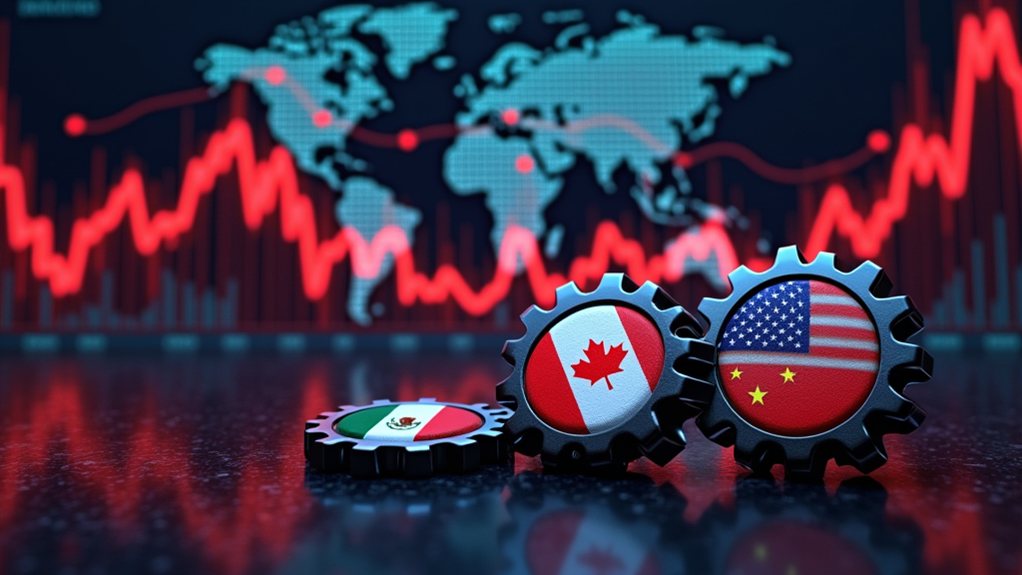Markets are reeling from the effects of a new tariff war. The S&P 500 fell 1.4%, erasing all gains since Election Day. The Dow Jones Industrial Average dropped 580 points, or 1.3%. NASDAQ also saw a decline of 1.4%. In Europe, markets faced sharp declines, while Asian markets experienced more modest drops. These reactions came after significant tariffs were imposed at midnight.
A 25% tariff was placed on imports from Canada and Mexico. Additionally, Canadian energy products now face a 10% tariff. Tariffs on Chinese imports doubled from 10% to 20%. Analysts estimate these changes could boost federal tax revenue by $142 billion. However, the economic impact might be severe. GDP growth could decrease by 0.4%, costing over $100 billion. There's a risk of a moderate recession in Canada and an industrial recession in the U.S. Consumer spending may also drop due to rising prices. Concerns about potential trade war with Canada and Mexico are mounting as retaliatory measures loom. The trade tensions are raising global economic concerns as economists predict potential Canadian recession if tariffs persist.
Retaliation is already underway. China plans to impose up to 15% tariffs on U.S. farm exports. Canada is expected to announce $100 billion in tariffs over the next 21 days. Mexico will reveal its response soon. This back-and-forth could escalate the trade war further.
Businesses are feeling the pinch too. Higher input costs could lead to an earnings recession for S&P 500 companies. The auto industry's supply chains might get disrupted, and retailers are facing pressure that could hurt profits. Companies might begin stockpiling goods or changing supply chains to adjust.
Consumers will likely face higher prices on many everyday items. Electronics, appliances, and vehicles could see price hikes. Groceries, including fruits and vegetables, might also cost more. There's a chance that spirits from Canada and Mexico will be pricier too.









